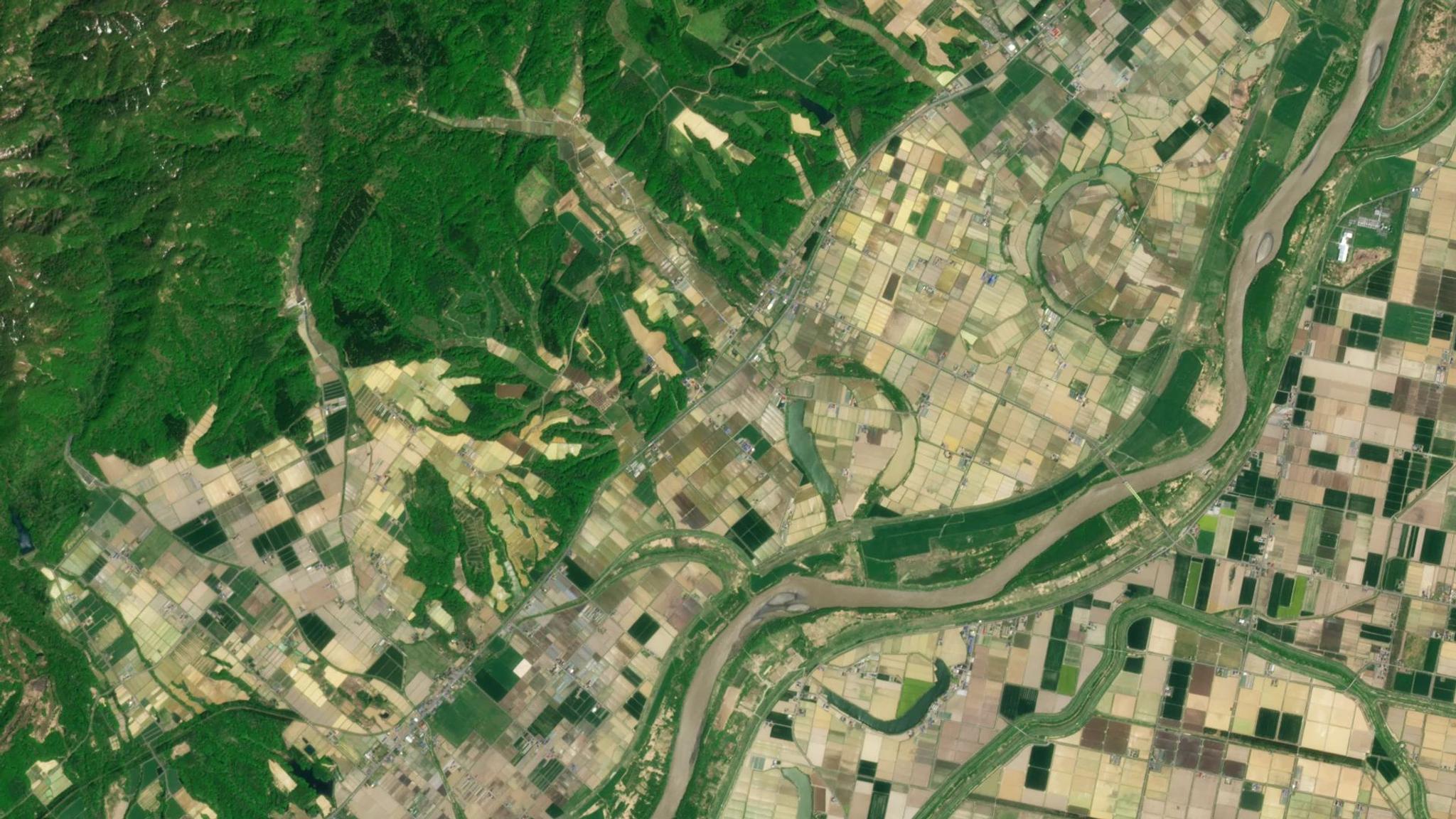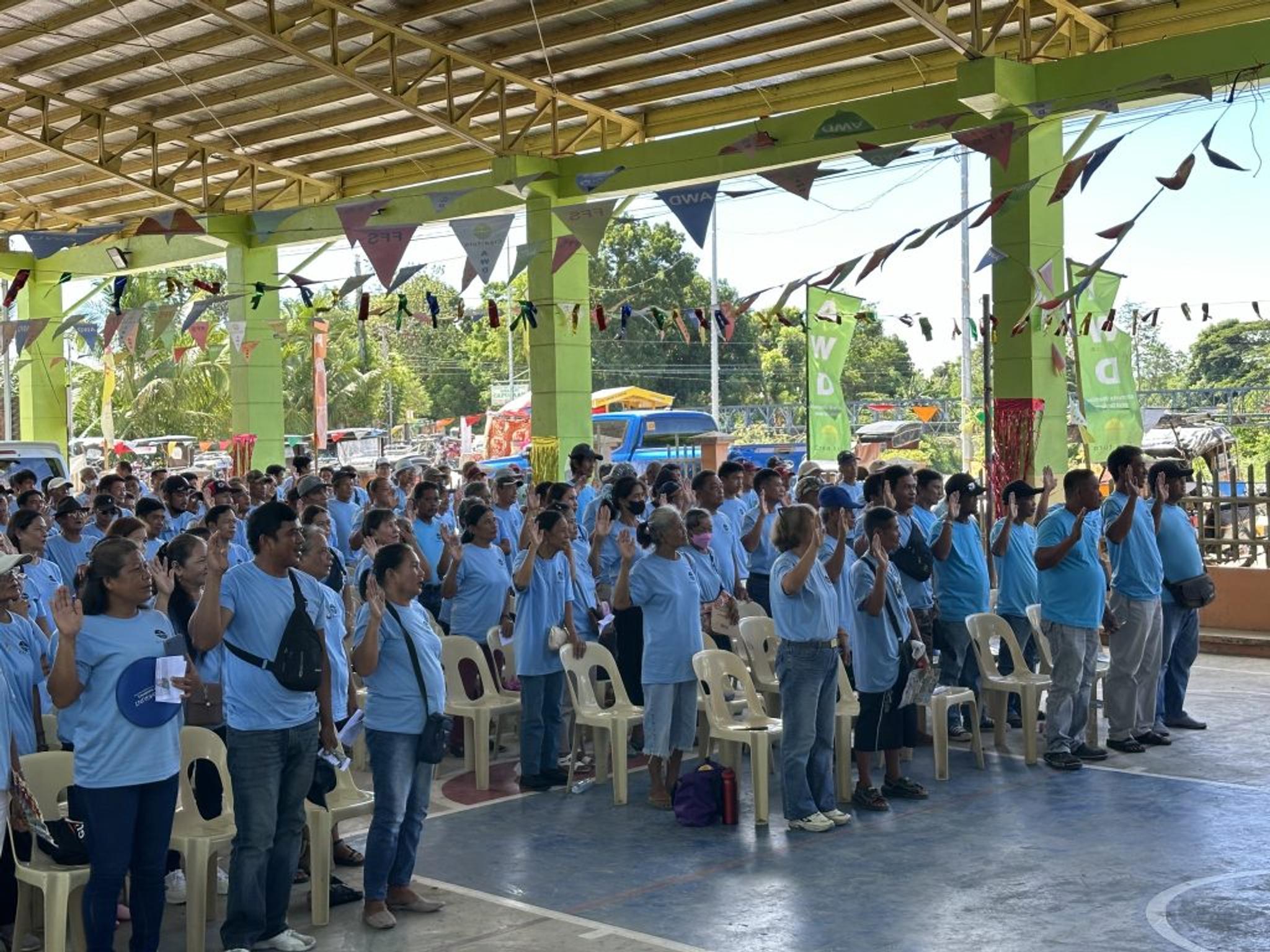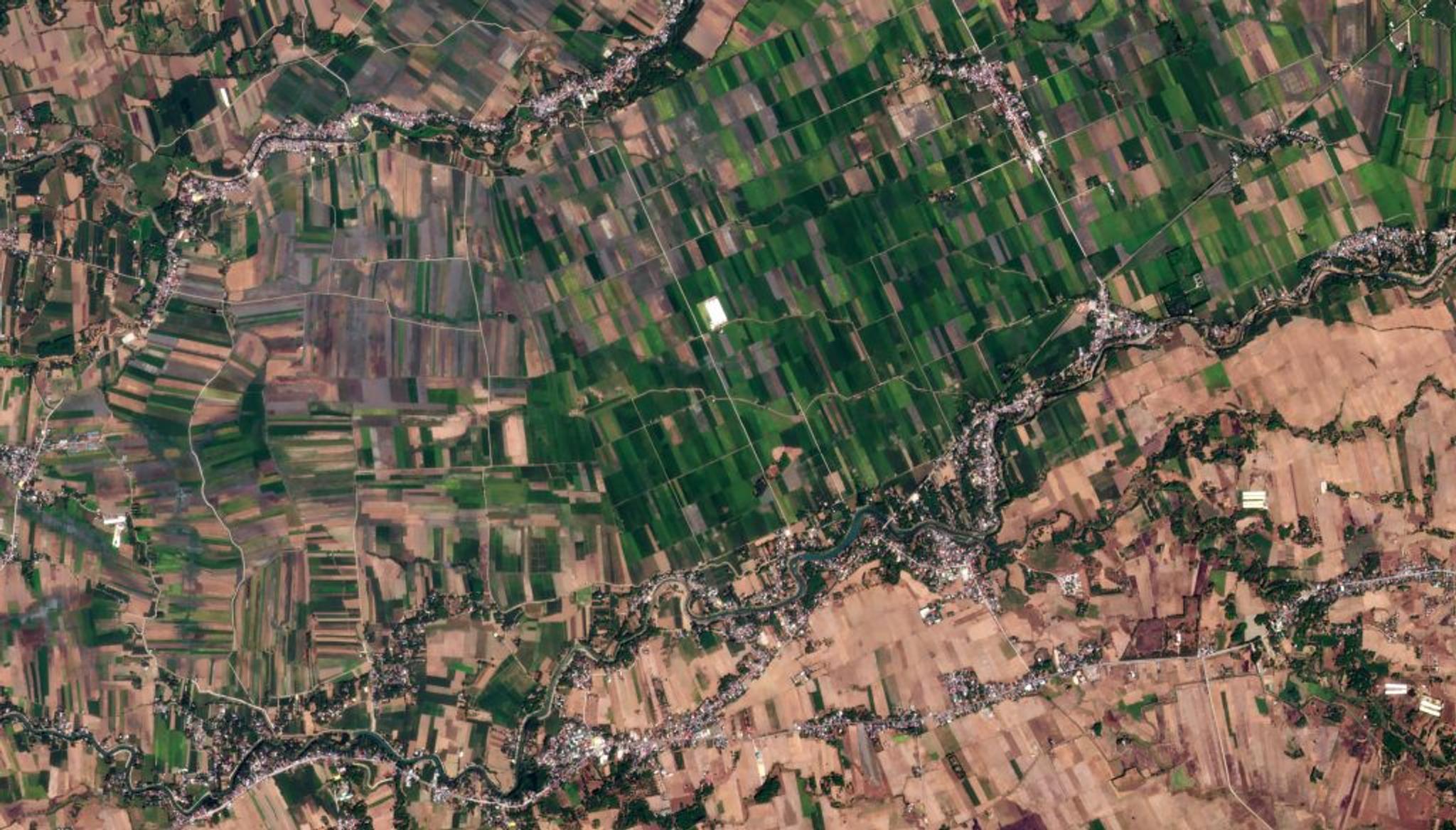Rice Up! How Creattura Rises to the Challenge of Switching to Sustainable Agriculture Without Decreasing Yields

Sorachi Subprefecture in Hokkaido, Japan, taken on May 17, 2022 © Planet Labs PBC. All Rights Reserved.
StoriesWhen a daily food staple feeding half of the world’s population emits 12% of global human-caused methane, what can we do about it? This is the dilemma that Creattura sustainably aims to solve together with a science-based approach and the local communities. Based in Japan, the company specializes in climate finance, partnering with local and regional multinational corporations to assist in carbon accounting, emissions reduction, offsetting, in-setting, and greenhouse gas reduction initiatives.
SWITCHING TO SUSTAINABLE AGRICULTURE
Rice farming is a contributor to human-induced global warming, responsible for 1.5% of total global greenhouse gas emissions, and relies heavily on an increasingly scarce resource: water. On the other hand, rice is a source of life and is culturally significant to the Asia-Pacific and Japan region. Understanding these nuances, the Creattura team is developing Lynx, a digital measurement, reporting, and verification (MRV) platform enabling farmers to cut their methane emissions in half without sacrificing farm productivity. On top of that, companies committed to contributing to the reversal of global warming can support this initiative by buying carbon credits against the reduced emissions.
The challenge: The longer rice paddies are flooded with water, the higher the methane emissions are.
The solution: An automated irrigation calendar using Planet satellite data and AI to support the rollout of sustainable rice farming.
Using Planet data, Lynx detects the presence of water in each rice paddy on a daily basis, objectively tracking farmers’ irrigation activities from space. This reduces the burden on farmers for manual data collection and increases the integrity of the resulting carbon credits. To encourage the adoption of sustainable agriculture, Creattura organizes knowledge-sharing sessions with farmers, training them on the alternate wetting and drying technique, and providing cash incentives called “green carrots” to those who successfully switched to sustainable farming.

Farmer field school graduates in Pangasinan, Philippines, taken on May 16, 2024. © Creattura Co Ltd. All Rights Reserved.
The carbon credits sold to corporations sustain the incentive program. For Zachary Brown, CTO and Co-Founder of Creattura, “Adding remote sensing data to carbon credits has the potential to increase customer trust. This raises the bar of integrity within the industry.”
AI, DATA, AND EVERYTHING RICE
In the early days of developing Lynx, the Creattura team faced the inevitable challenge of collecting digital water level data at scale, across thousands of hectares. They previously used publicly available data sets with insufficient revisit frequencies and low satellite imagery resolution. Realizing the limitation of public data, they subscribed to other satellite imagery providers, but none had anything approaching daily coverage and were usually only available on a tasking basis, entailing higher costs.
PlanetScope filled this operational data gap with a persistent view of the local farmlands. “The daily coverage is a game changer. And having historical data that goes back several years allows us to digitally prove additionality for each individual rice field, which is super powerful. This was the dataset we needed to bring our vision to life,” said Brown.

PlanetScope imagery of rice fields in Pangasinan, Philippines, taken on February 22, 2024 © Planet Labs PBC. All Rights Reserved.
Another benefit to local farming is the ease of using digital MRV without requiring stakeholders to manually take geotagged photos for reporting and verification. The scalability of sensing data enables an inclusive approach to sustainable farming. It removes the burden of verification on smallholder rice farmers and allows them to focus on their tasks.
While we are still far from our collective goal of limiting global warming to 1.5°C, Creattura’s novel climate solution is a positive step towards that goal.
“Sustainable rice agriculture is a solution that can make a huge impact in reducing greenhouse gas emissions and the effect is immediate. PlanetScope gives us the ability to massively scale the positive impact. We need solutions that are highly scalable and that have an immediate impact, not 10 years from now,” added Brown.
Looking for ways to use geospatial solutions for sustainable agriculture? Explore how precision farming drives more productive and profitable techniques while reducing harmful emissions.

Ready to Get Started
Connect with a member of our Sales team. We'll help you find the right products and pricing for your needs.

